ISA Visiting
Selected by the ISA Scientific Board for scientific relevance and interdisciplinarity, the ISA Visiting Fellows 2025 will give a public lecture and conduct research in our Departments. They are:
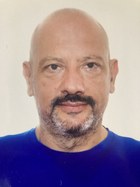
Héctor Julio Pérez López
Full Professor
Department of origin: Dpto. de Comunicación Audiovisual, Documentación e Historia del Arte,Valencia España
Unibo reference: Guglielmo Pescatore
Department of the Arts
from April 1, 2025 to May 1, 2025
Short bio: Héctor Julio Pérez López is full Professor of Media Aesthetics at the Universidad Politécnica de Valencia (Spain). He is an internationally recognized expert in the study of the narrative and aesthetics of television series. He has led, as principal Investigator, 3 research projects about Serial TV and developed international interdisciplinary collaboration on them in the last 10 years (Theoretical Innovation Strategies in the Analysis of Narration in Television Series, from 2015 to 2018; Interactions between cognitive value and aesthetic properties in contemporary serials, from 2019 to 2022; Multi-Plot Aesthetics and Information Density in Contemporary Television Series, from 2022 to 2024). His pioneering interdisciplinary work has involved collaborating with leading experts in cognitive science, such as Reiner Reisenzein or Joseph Paul Magliano, to explore narrative emotions, such as surprise, or specific features central to seriality, such as multiplot structure, or narrative climaxes. The results of this work have been published in high impact international journals such as: Pérez, H. J., & Reisenzein, R. (2020). On Jon Snow’s death: Plot twist and global fandom in Game of Thrones. Culture & Psychology, 26(3), 384-400. Pérez, H. J. (2022). Aesthetics of the narrative climax in contemporary TV serials. The Journal of Aesthetics and Art Criticism, 80(2), 214-223. He has been promoter and co-editor, of the first interdisciplinary publication dedicated to TV seriality: Nannicelli, T., & Pérez, H. J. (2021)
Roderick John Fensham
Department of origin: School of the Environment, Australia
Unibo reference: Marco Cantonati
Department of Biological, Geological and Environmental Sciences (BiGeA)
from April 1, 2025 to May 16, 2025
Short bio: Professor Rod Fensham is a global leader in the fields of plant conservation, woody vegetation dynamics, rare plant conservation, fire ecology, and grazing ecology. He also has a leading reputation as an ecological historian. He has also published a very popular book, a guide to the local eucalypts of Brisbane. He is a very experienced public speaker and a very proactive educator at the University of Queensland. He has also become a global expert on spring ecosystems through his work in Australia: - field survey of active and inactive springs; - maintaining a database of springs; - conducting biological survey of springs including discovery of many new species; - working with geologists to resolve hydrogeology of springs; -assessing environmental impacts of mining development on springs; - working with governments and civil servants to establish private and public conservation reserves for springs; - designing a $350M investment in aquifer restoration to provide maximum benefit for springs; - popularising springs through articles, books and television. Professor Fensham has taken this Australian experience into the global arena.He established a Fellowship of the Spring (FoS) currently with 35 members from 19 countries, including many developing nations.
Baptiste Brossard
Sociologist
Department of origin: Department of Sociology, East Campus, University of York,
Unibo reference: Veronica Moretti
Sociology and Business Law - SDE
from April 5, 2025 to May 5, 2025
Short bio: Baptiste Brossard is a sociologist specialising in critical mental health and historical sociology. After studying sociology, anthropology and history at the Ecole Normale Supérieure de Paris and School for Advanced Studies in the Social Sciences, he worked at the University of Montreal as a postdoctoral researcher and obtained his first position at the Australian National University in 2016. He then joined the Department of Sociology of the University of York in January 2022, where he is now Senior Lecturer. Dr. Brossard's contributions have been recognized through several awards, including the Fondation pour le lien social Young Researcher Award (France, 2014), the Early-in-Career Award from the Society for the Study of Symbolic Interaction (USA, 2021), a teaching award from the Australian National University (2021), and his recent publication was shortlisted for the Foundation for the Sociology of Mental Health Prize (UK, 2023). His work is situated at the intersection of critical sociology (influenced by Bourdieu’s theories of embodiment), historical sociology (drawing on Elias’ processual approach), and micro-sociology. He employs qualitative methods, including interviews, ethnography, archival research, and mixed methods. His previous studies have explored a range of topics, such as selfharm, Alzheimer's disease, behavioural addictions, and the legacy of Charles H. Cooley, whom he has introduced to French audiences as his first translator. Dr Brossard’s last book, co-authored with Amy Chandler, Explaining Mental Illness (Bristol University Press, 2022), offers a critical review of the sociology of mental health. His research agenda currently follows two connected paths: Critical Mental Health, with projects that investigate mental health phenomena such as trauma, depression, and suicide in light of their socioecological contexts; and Historical Sociology, examining interactional and emotional experiences in the West since the eighteenth century.
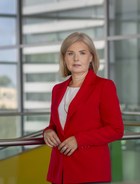
Dorota Krawczyk
Associate Professor
Department of origin: Department of Sustainable Construction and Building Systems, Faculty of Civil and Environmental Engineering, Poland
Unibo reference: Eugenia Rossi di Schio
Department of Industrial Engineering - DIN
from April 24, 2025 to May 24, 2025
Short bio: Prof. Dorota Krawczyk had her Doctoral degree in Technical Science, discipline Environmental Engineering in 2005, and then, in 2018, Doctor hab. degree in Technical Science, discipline Environmental Engineering, both at Bialystok University of Technology. At present she is Associate Professor at Bialystok University of Technology, Head of Department of Sustainable Construction and Building Systems, Faculty of Civil and Environmental Engineering, and Vice-rector for International Cooperation. Since 2023 she is also Ambassador of the European Climate Pact. Her main research interests include: energy consumption, energy certification of buildings and the possibility of improving the energy performance of facilities; indoor air quality and application of renewable energy sources; buildings energy simulation as a tool to optimize technologies used in a way to decarbonization. She promotes internationalization of higher education, and she adopts innovative approaches to teaching of future engineers. A long experience has been reached in organizing summer schools as a tool for delivering practical skills.
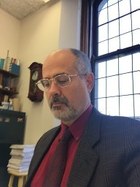
Dario Maestripieri
Full Professor
Department of origin: Department of Comparative Human Development, USA
Unibo reference: Lorenzo Tonetti
Department of Psychology "Renzo Canestrari"
from May 1, 2025 to May 31, 2025
Short bio: Dr. Dario Maestripieri is recognized as a leading scientist in the fields of ethology, primatology, evolutionary psychology and anthropology, psychobiology, and socioendocrinology. He has done research on many aspects of human behavior from a comparative, evolutionary, and interdisciplinary perspective. Recently he has also been interested in exploring and integrating the relative contributions of scientific and humanistic disciplines to the generation and transmission of new knowledge about human behavior and the human mind. Dr. Maestripieri has authored or edited 7 books and authored or co-authored more than 260 scientific publications. His work has been cited more than 16,000 times and his H-index is 80. He has obtained more than $ 4 million in research grants from the National Institutes of Health. Dr. Maestripieri was awarded the “B. Grassi Prize” from the Accademia Nazionale dei Lincei, the Distinguished Scientific Award for Early Career Contribution to Psychology from the American Psychological Association, and a Career Development Award from the National Institute of Mental Health. He has been elected Fellow of the American Association for the Advancement of Science, of the Association for Psychological Science, of the Midwestern Psychological Association, and of the Human Behavior and Evolution Society. He is the Editor-in-Chief of the journal Adaptive Human Behavior and Physiology published by Springer, and of the journal Evolutionary Behavioral Sciences published by the American Psychological Association.
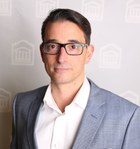
Nicolas Corradi
Full Professor and University Research Chair in Microbial Genomics University of Ottawa
Department of origin: Department of Biology, Canada
Unibo reference: Riccardo Baroncelli
Department of Agricultural and Food Sciences
from May 1, 2025 to May 31, 2025
Short bio: Professor Nicolas Corradi is a leading expert in the Genome Biology of Eukaryotic Microbes, currently a Full Professor at the University of Ottawa. His research focuses on microbial genomics, with particular expertise in arbuscular mycorrhizal fungi, which are crucial symbionts in plant ecosystems. He has published over 80 peer-reviewed articles in top-tier journals, including Nature Microbiology and PNAS, highlighting his contributions to understanding the genetics and evolution of microbial symbioses. Prof. Corradi’s work has been recognized through prestigious awards, such as the University Research Chair in Microbial Genomics, a Mid-Career Research Excellence Award from the International Mycorrhiza Society, 7 year long Fellowhip from the Canadian Institute for Advanced Research (CIFAR) and the Ontario Early Researcher Award. He has secured significant research funding from major agencies, including Genome Canada, NSERC, and MITACS (Industry), supporting projects that explore the ecological roles and genetic diversity of fungi, and its application in agriculture. His international collaborations and numerous invited plenary and keynote lectures at the best conferences in the field and world-class institutions further underscore his status as a prominent scientist in his field, dedicated to advancing knowledge on microbial interactions and their impact on ecosystems.

Franco Taroni
Full Professor of forensic statistics
Department of origin: Faculté de Droit, des Sciences Criminelles et d’Administration Publique, Switzerland
Unibo reference: Carla Bini
Department of Medical and Sugical Sciences
from June 16, 2025 to July 14 2025
Short bio: Professor Taroni is full professor of forensic statistics at the University of Lausanne (Faculty of Law, Criminal Justice and Public Administration, School of Criminal Justice). He develops models for inference and decision-making under uncertainty in forensic science and law. He was awarded grants from the Swiss National Science Foundation and EU Marie Curie Fellowships. 13 PhD students have obtained their degrees with honors. Some of them have been appointed as professors in forensic science, statistics or criminal law. He authored 8 books and more than 260 peer-reviewed articles and chapters in scientific and law journals. He is co-author of the leading book on forensic statistics (Aitken & Taroni 2004, 3rd ed. 2021) and the principal author of books on the use of graphical probabilistic models (2006, 2nd ed. 2014) and on Bayesian decision data analysis (2010). In 2022, he co-authored a Springer openaccess book on the use of Bayes factor for data analysis. Support of research community: The experience gained in lecturing since 2002 was further developed in 2010 in a unique long-distance education project (e-learning) entitled ‘Statistics and the evaluation of forensic evidence’. A MOOC course entitled ‘Challenging forensic science: how science should speak to court’ is freely available on www.coursera.org. He is member of scientific societies and international committees. Engagement for society: Professor Taroni offers pro bono forensic consulting services for international institutions (e.g. Innocence Project New York). He is requested by forensic organisations throughout Europe and abroad (USA, Canada, China) to provide training workshops to forensic scientists. He contributes to guidance documents on evaluative reporting (e.g., European Guidelines). He was an advisor on the use of DNA evidence in investigation for the French (2001) and Swiss (2022) Parliaments.
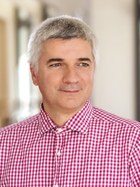
Branko Glisic
Full Professor
Department of origin: Department of Civil and Environmental Engineering,Princeton University
Unibo reference: Antonio Maria D'Altri
Department of Civil, Chemical, Enviromental and Industrial Engineering
from July 1, 2025 to Jult 31, 2025
Short bio: Prof Glisic is currently Full Professor and Chair of the Department of Civil and Environmental Engineering (CEE) at Princeton University. Prof Glisic research interests mainly deal with Structural Health Monitoring (SHM), Smart Structures, and Heritage Structures. His focus is on advanced sensing technologies, universal SHM methods, data analysis & management, and prognostics and decision-making theory; smart kinetic, deployable and adaptable structures; holistic analysis of heritage structures, and engineering and the arts. Prof Glisic research includes long-gauge and distributed fiber optic sensors (FOS), 2-D sensing sheets based on large area electronics (LAE), 3-D sensing techniques based on radio-frequency tags (RF-tags), sensors based on conductive polymers, and ground penetrating radar (GPR); numerical, analytical, and model-free techniques based on structural analysis and machine learning for structural and material identification, characterization of unusual behaviors and prediction of structural performance; documentation, integration and visualization using Virtual Tours, Information Modelling, and Augmented Reality (VT/IM/AR). His application domains include concrete, steel, and masonry structures: bridges, buildings, pipelines, coastal protections, and historical buildings, monuments, and sites. Prof Glisic has an exceptional academic reputation (The Structural Health Monitoring Person of the Year Award in 2013, ISHMII Fellow in 2018). At Princeton University, Prof Glisic teaches the following courses: Statics of Structures, A Social and Multi-Dimensional Exploration of Structures, Structural Health Monitoring, Holistic Analysis of Heritage Structures, Historical Structures: Ancient Architecture's Materials, Construction and Engineering.
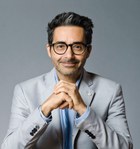
Giuseppe Iaria
Professor
Department of origin: Department of Psychology, Canada
Unibo reference: Prof. Matteo Cerri
Dipartimento di Scienze Biomediche e Neuromotorie
from June 30, 2025 to July 30, 2025
Short bio: Dr. Iaria is a Professor of Cognitive Neuroscience at the University of Calgary, holding appointments in the Departments of Psychology and Clinical Neurosciences. He also serves as the Director and Research Chair of the Canadian Space Health Research Network (CSHRNet), a non-profit organization comprising over 1,000 principal investigators and trainees from academia and industry. Internationally renowned for his work on human spatial cognition, Dr. Iaria's research delves into the behavioral and neurological mechanisms underlying this cognitive function. In 2008, he identified a new developmental disorder, Developmental Topographical Disorientation (DTD). His unique research on the neurological effects of space travel on astronauts, conducted at NASA, has been pivotal in understanding how brain structure and function are altered during extended missions to the International Space Station. Dr. Iaria has published over 100 peerreviewed articles in prestigious journals, including Lancet Neurology and Trends in Cognitive Sciences. His work has garnered over 7,000 citations, earning him an h-index of 46 and an i10-index of 79. His research has been supported by various institutions, including CIHR, NSERC, SSHRC, Canada's Department of National Defence, and the Canadian Space Agency. His contributions have also been featured in major media outlets like The Guardian, The Atlantic, The New York Times, BBC, and CBC. Since 2009, Dr. Iaria has taught undergraduate and graduate courses on Cognitive and Clinical Neuroscience and supervised students at all levels. He has graduated over 20 graduate students and hosted in his laboratory international students from India, Mexico, Germany, France, and Italy. His students have collectively contributed to over 70 peer-reviewed articles and have presented their work at national and international conferences. Dr. Iaria is frequently invited as a keynote speaker at academic and public events, including recent engagements at McGill Univ.

Cristian Borocea
Professor
Department of origin: Department of Computer Science, USA
Unibo reference: Luca Foschini
Department of Computer Science and Engeneering
from June 1, 2025 to July 5, 2025
Short bio: Cristian Borcea is a Professor in the Department of Computer Science at New Jersey Institute of Technology (NJIT). He also holds a Visiting Professor appointment at the National Institute of Informatics, Tokyo, Japan. Cristian also served as the Chair of Computer Science Department at NJIT and the Associate Dean for Strategic Initiatives in the College of Computing at NJIT. In these leadership positions, he created a new Department of Data Science and Research Centers in Big Data and Cybersecurity. He received his Ph.D. degree in Computer Science from Rutgers University, and his research interests include mobile computing, vehicular networks, distributed systems, privacy, and computational advertising. Cristian has over 20 years of research experience in these areas and has published over 120 papers in high-quality international conferences and journals. His research has been covered in over 25 media articles in the past several years. He recently served as General Chair for IEEE ICDCS and IEEE MDM conferences, as well as Technical Program Chair of IEEE Mobile Cloud and EAI Mobiquitous conferences. In the past, he has done pioneering work in programming mobile ad hoc networks, routing and applications for vehicular networks, mobile crowdsensing, mobile cloud computing, and machine learning for computational advertising. His current projects focus on federated learning and privacy, with results published in AAAI, ACM WWW, IEEE Transactions on Mobile Computing, etc. His recent research has been funded by NSF, AT&T, and Qualcomm.

Eleonora Stoppino
Associate Professor
Department of origin: Department of French and Italian - University of Illinois
Unibo reference: Prof. Francesco Ferretti
Dipartimento di Filologia Classica e Italianistica
from May 01, 2025 to May 31, 2025
Short bio: Eleonora Stoppino is Associate Professor of Italian, Medieval Studies and Comparative Literature at the University of Illinois. She specializes in the literature and culture of the Middle Ages and Early Modern period, with concentrations on literary and cultural theory (gender studies; animal studies; semiotics and narratology; folklore), book and print-media history, Classical reception and translation, epic and romance, conduct texts, travel narratives, romance philology and the history of literary criticism. She works comparatively across different geographic areas of the Mediterranean, including Italy, Spain, Provence, France, and Catalonia. She has published on Dante, Boccaccio, Boiardo, Ariosto, Tasso, the Italian epic tradition, and medieval conduct literature, both in Europe and in the U.S. Her books include Genealogies of Fiction: Women Warriors and the Medieval Imagination in the Orlando Furioso (Fordham University Press, 2011, winner of the AAIS 2012 Book Prize), Performing Homer: The Voyages of Ulysses from Epic to Opera (co-edited with Wendy Heller, 2019), and the complete catalogue of chivalric incunabula printed in Italy (Libri cavallereschi in prosa e in versi, with Anna Montanari, Interlinea, Novara, 2022, supported by a generous grant from the Centro Studi Matteo Maria Boiardo). Professor Stoppino’s work on Ariosto has been internationally recognized, and she was one of the nominated members of the Italian Republic Committee for the 500th anniversary of the publication of Ariosto’s Orlando furioso. She is a reviewer for ANVUR and an elected representative of Italian for the Modern Language Association and the Renaissance Society of America. Her current projects include a book on animals and contagion in Medieval literature and a book on speculative thinking in epic literature.
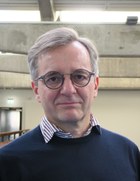
Joerg Gleiter
Full professor of Architectural Theory
Department of origin: Faculty VI, Institute of Architecture, Department of Architectural Design, Berlin
Unibo reference: Prof. ssa Annalisa Trentin
Dipartiment of Architecture
from Sept 10, 2025 to October 10, 2025
Short bio: Joerg H. Gleiter (Dr.-Ing. habil.) Since 2012 Full Professor and head of the Department of Architectural Theory at Technical University of Berlin. 2008-12 he held a Professorship of Aesthetics at Libera University di Bozen-Bolzano/Italy. He studied architecture at Technische Universität Berlin, IUAV-Venezia and Columbia University in New York. 1989 diploma in architecture from Technische Universität Berlin and in 1992 M.Sc. in Advanced Architectural Design from Columbia University. PhD in Architectural Theory (2001) at Bauhaus University Weimar and Habilitation (2007) also from Bauhaus Universität Weimar. His doctoral dissertation was on Critical Theory of Ornament and his habilitation on Friedrich Nietzsche and Physiology of Architecture. Prior to his employment as professor of aesthetics in Bozen-Bolzano Gleiter held guest professorships in 2003 at Venice International University (Venice); 2003-2005 at Waseda University (Tokyo) and 2005-2007 at Bauhaus University Weimar. More recently he was invited as visiting professor in 2016 to Brown University (Providence/RI USA), from 2021 to 2024; at Politecnico di Milano and in 2023 at Politecnico di Torino. 2015-19 he was managing director (dean) of the Institute of Architecture, since 2015 Gleiter is member of the academic senate of TU Berlin (AS/EAS), since 2013 he is a member of the Council of the Institute of Architecture, since 2020 he chairs the ethic commission of Faculty VI. Since 2017 he is a regular panel member at the ERC (European Research Council). 2008 Gleiter founded the book series ArchitekturDenken, since then 16 volumes. His main research interests are critical theory of sustainability, transformation of knowledge, ornament theory, architectural theory and philosophy, aesthetics and semiotics. Gleiter is the author of numerous scientific articles in international magazines and book chapters. Recent publications are gleiters universum. architektur (2023); Architekturtheorie zur Einführung (2022).
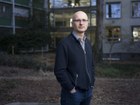
Nenad Stojanović
Associate Professor of Political Science
Department of origin: Département de Science Politique et Relations Internationales, Switzerland
Unibo reference: Prof. Roberto Belloni
Dipartiment of Political and Social Sciences
from Octorber 01, 2025 to November 30, 2025
Short bio: Nenad Stojanović is a political scientist working in the field of democracy studies. In particular, he is interested in the impact of institutions – such as direct democracy and electoral systems – on political actors and citizens, and especially on the institutional accommodation of minorities in so-called “consociational” democracies and/or in culturally and linguistically heterogeneous societies. Over the past five years, he has been increasingly involved in the research projects aimed to address the growing debate on “democracy crisis”, given the rise of populism and ethno-nationalism in Europe and beyond. In that context, prof. Stojanović has explored the role of “democratic innovations”, i.e. novel institutional tools that could help to mitigate the democracy crisis, and has become a leading scholar in Switzerland working in this research area. In particular, with the team of the “Demoscan” project, he has set up the first citizens' assembly in Switzerland, in Sion (2019), made up of a group of citizens chosen by lot. Between 2020 and 2024, with the scientific support of prof. Stojanović, over a dozen of citizens' assemblies have been organized in various Swiss municipalities and cantons, as well as at the federal level. In 2022, he was co-director of an EU project involving the set-up of a citizens’ assembly in Bosnia and Herzegovina. Prof. Stojanović is the author of two monographies: Dialogo sulle quote. Rappresentanza, eguaglianza e discriminazioni nelle democrazie multiculturali (Il Mulino, 2014) and Multilingual Democracy: Switzerland and Beyond (ECPR Press, 2021), as well as a co-editor of three edited volumes. His work has been published in peer-reviewed journals such as The Journal of Politics, Comparative Political Studies, Political Behavior, Journal of Common Market Studies, International Political Science Review, European Political Science Review, and Swiss Political Science Review.

Diego Ribeiro Moreira
PhD, Full Professor
Department of origin: Departemento de Mátematica, Brazil
Unibo reference: Fausto Ferrari
Department of Mathematics
from Sept 1, 2025 to October 1, 2025
Short bio: Diego Ribeiro Moreira is Professor Titular Livre at the Federal University of Ceará (UFC), Brazil. The position of Professor Titular corresponds to that of full professor in the USA and that of full professor in Italy. The name "Livre" allows us to distinguish the highest academic degree, because it was achieved through a competition. Moreira obtained his PhD in the USA under the guidance of Luis Caffarelli (Luis A. Caffarelli was awarded the Abel prize in 2023 for the studies carried out in this field of research). After the completion of the Ph.D, Moreira developed his research activity at the University of Iowa collaborating with Lihe Wang as visiting assistant professor during the period from 2007 to 2010 and then continuing his career in Brazil as assistant professor at UFC in 2010 and then as associate professor in 2013 and finally becoming professor titular in 2020 in the same University. In 2024 he occupied the position of full professor at the University of Sao Paulo at São Carlos for one year (a sabbatical one). In Brazil this means a highly prestigious position obtained via a very competitive selection. He also obtained a grant at the ICTP (International Center for Theoretical Physics) in Trieste for the period 2020-2025 with a regular associate position. His research activity concerns the study of nonlinear elliptic partial differential equations, both in the case of operators in divergence and non-divergence form. In particular, he is interested in the study of free boundary and transmission problems, with elements of contact with harmonic analysis.Moreira's scientific production is of high scientific quality and his publications also include a collaboration with Alessio Figalli, an Italian mathematician now working at ETH in Zurich that was recently awarded the Fields medal (The Fields medal is the highest honor for a mathematician).Moreira supervised 5 PhD students and three PostDocs. Four of the doctoral students are now assistant professors.

Ravi K.Sheth
Professor and Graduate Chair
Department of origin:Department of Physics and Astronomy, USA
Unibo reference: Lauro Moscardini
Department of Physics and Astronomy "Augusto Righi"- DIFA
from Sept 15, 2025 to October 15, 2025
Short bio: Ravi Sheth is a full Professor at the University of Pennsylvania (UPenn), based in downtown Philadelphia (USA). He was a Marshall Scholar at Cambridge University where he got his PhD in 1994. He then worked at UC Berkeley, the Max Planck Institute für Astrophysik in Garching (Germany), Fermilab and the University of Pittsburgh, before moving to UPenn in 2004. He is a leading researcher in the field of cosmology and the study of large scale structures of the universe. Prof. Sheth has developed physical models and statistical methods which are used to constrain cosmological parameters from large scale galaxy and cluster surveys, and have also been applied to the study of dark matter, galaxy formation and evolution, the structure of our Galaxy and the formation of black holes. Moreover, his work had a direct impact on fields related to statistics and mathematics, including combinatorics problems, stochastic processes and Gaussian statistics. Sheth’s active scientific production is demonstrated by the number of publications that he has (co-)authored (~300) with more than 32000 citations in total. He is the co-Director of the Cosmology Summer School, held every two years at the International Centre for Theoretical Physics in Trieste, which is attended by about 200 students from around the world. He serves as a member of the Science Advisory Board of the Kaufman Foundation, the Scientific Council of the East Africa Institute for Fundamental Research (Kigali, Rwanda), and the Scientific Council of the Inter-University Centre for Astronomy and Astrophysics (Pune, India). Moreover, Prof. Sheth has supervised a large number of under/graduate, PhD students and postdocs, many of whom now have permanent positions in academia.

Raphael Dumas
Research Director
Department of origin: Laboratory of Biomechanics and Impact Mechanics, France
Unibo reference: Nicola Sancisi
Department of Industrial Engineering
from October 1, 2025 to October 31, 2025
Short bio: Raphael Dumas received his M.Sc. in Mechanics (INSA Lyon, 1998), and Ph.D. in Biomechanics (ENSAM Paris, 2002), and is currently a Research Director at University Gustave Eiffel. In France, Research Director is a senior research position within a national research institute, equivalent to University Professor but only focused on research and scientific production, while a University Professor combines research with teaching responsibilities. He is team leader in the Laboratory of Biomechanics and Impact Mechanics and in the International (French-Canadian) Joint Laboratory – EVASYM. His research interest is in 3D multi-body modeling of the human musculoskeletal system applied to joint pathologies, postural and gait impairments. He is a member of Journal of Biomechanics, Frontiers in Mechanical Engineering, and Sensors editorial boards. Raphael Dumas currently serves on the board of 3D Analysis of Human Movement (Technical Group of the International Society of Biomechanics) and has served on the boards of the Francophone Societies of Biomechanics and of Motion Analysis for Children and Adults. He has coordinated several international (e.g., French-Taiwanese, FrenchAustralian, French-Italian) and national founded projects and contracts with orthopedic and motion analysis companies. He has supervised 20 doctorates and 6 post-doctorates. He has authored or co-authored more than 140 archive-journal full-papers, 10 book chapters, 200 congress proceedings, and 2 patents.

Jonas Christensen
Associate Professor
Department of origin: Department of Social Work - Sweden
Unibo reference: Elena Luppi
Department of Educational Studies "Giovanni Maria Bertin"
from October 6, 2025 to November 5, 2025
Short bio: Research focuses on Social Sciences and Educational Science, with expertise in qualitative methods. Key areas include professional and organizational learning, internationalization in higher education, transnational learning and collaboration, social welfare issues, and the ageing society. A strong emphasis is placed on understanding organizational and professional changes from an Educational Sciences and pedagogical perspective. Externally funded projects have been structured around three main perspectives: learning, care, and societal change. Specifically, research addresses: a) Knowledge formation regarding pedagogy’s role in cross-border professional and organizational contexts. b) Reflective applied science through international and interdisciplinary collaborations in education and research. c) Development of knowledge formation at individual, organizational, and societal levels, examining change processes. d) The interplay of learning, care, and societal perspectives in progressive development. Since 2010, coordination of national and international externally funded research projects has been undertaken, including CareSam, an international partnership focused on research and knowledge acquisition in elder care and the ageing society (https://caresam.mau.se). Responsibilities at the Department of Social Work include serving as International Coordinator (since 2012) and Course Instructor for international courses. Frequent engagements include keynote speaking, panel participation, and conference presentations worldwide. Visiting lectureships are held at Malmö University (Sweden) and HAWK University of Applied Sciences (Germany), with supervision and examination of international Master’s students. Additional contributions include coordinating the Challenge-Based Learning project within the European Alliance of Universities (2021–2022) and serving as a reviewer for international academic journals.
Anastassia V. Obydenkova
Research Scientist
Department of origin: National Research Council (IAE-CSIC), Barcellona España
Unibo reference: Lorenzo Zambernardi
Department of Political and Social Sciences
from to in the process of being defined
Short bio: Dr. Obydenkova is a research scientist at the Institute for Economic Analysis of the Spanish National Research Council (IAE-CSIC) and affiliated Professor at Barcelona School of Economics. She holds a PhD in Political and Social Science from the European University Institute in Florence (Italy). She held multiple teaching and research appointments at Harvard University, Zurich University, Uppsala University, Hebrew University of Jerusalem, Barcelona Institute for International Studies, Carleton University (Canada), PIIRS (Princeton University), and at MacMillan Center at Yale University. Her expertise are in comparative politics and international relations with a focus on geopolitical competition, international organizations, and sustainable development, with area-focus on Eurasia and China. Her work on these topics had been published in such journals as European Journal of Political Research, Publius: The Journal of Federalism, World Politics, Comparative Political Studies, Review of International Organizations, Intelligence, Environmental Research, Democratization, and Journal of Democracy, etc. She is a (co-) author and editor of 12 books and special issues with the most recent ones published by Oxford and Cambridge University Press. Her complete list of publications can be found here. Quality and quantity of her contributions can be found through Web of Science, Scopus, Google Scholar: N of Citations: 3104, H-index =34; ¡10-index = 57. Anastassia is a Spanish citizen with a mixed Russian-Ukrainian origin and with parents and grandparents from Turkmenistan and Finland. She graduated with the highest grade in 1998 from Lomonosov University and, as a recipient of Diploma Suma Cum Laude, she was awarded her very first research fellowship in 1999 by Yale University. Since 1999, her career was developing in the USA, Hungary, Italy, Belgium, Israel, Sweden and Spain.
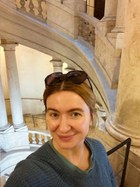
Audrey Borowski
Research Fellow
Department of origin: Minderoo Centre for Technology and Democracy - Cambridge University/University of Bonn
Unibo reference: Diego Donna
Department of Philosophy
from November 1, 2025 to December 15, 2025
Short bio: Dr. Audrey Borowski is a Research Fellow on the “Desirable Digitalization” project between the Universities of Cambridge and Bonn. Her monograph, Leibniz in his World: The Making of a Savant, was published by Princeton University Press in 2024. Borowski is a rising star in the field and her research is highly interdisciplinary – she aims to straddle different fields (philosophy, media theory, politics, machine learning, etc.), and much of her work seeks to provide a better theoretical and conceptual understanding of digital and algorithmic systems in the hope of reorienting the field, approaching AI and digital systems from a more philosophical, social and political perspective, rather than that afforded by the more specifically applied technological or ethical perspectives that dominate much current research. Since March 2023 she has also convened and been the discussant on the highly popular online ‘AI and the Digital’ seminar series. https://www.youtube.com/@ThePhilosopher1923
Borowski is currently working on her second book, Philosophers of the Digital Age (also contracted with PUP). This book explores the long philosophical and conceptual history of computing as ‘thought made being’ from Leibniz to Latour. In its later part, her book focuses on the more political and ideological aspects of algorithmic systems and how these systems compound such phenomena as so-called ‘echo chambers’, social fragmentation, and political polarization in a way that impedes the constitution of a sense of community or social whole: data in its various constant recombinations as it is constantly redeployed and fed back, has come to produce meaning, occupy our life-worlds, and shape reality. Crucially, it powers ideology, further depriving us from the conditions for genuine political action. Within this new digital regime, risk and volatility are no longer the exception but the norm; and continuous crises have become naturalized as a structural condition.
Kumar Dhruv
Professor and Head
Department of origin: School of Health Sciences and Technology - India
Unibo reference: Giampaolo Zuccheri
Department of Pharmacy and Biotechnology
from Nov 1, 2025 to Decemer 1, 2025
Short bio: Prof. Dhruv Kumar is a Professor and Cluster Head at the School of Health Sciences and Technology, UPES, Dehradun, recognized among the world’s top 2% scientists in Oncology and Cancer Biology by STANFORD list. He earned his B.Sc. in Chemistry from Banaras Hindu University (BHU), Varanasi, and an M.Sc. in Bioinformatics with Distinction from the University of Allahabad (AU), Prayagraj. Dr. Kumar completed his Ph.D. in Cellular, Molecular, and Industrial Biology at the University of Bologna (UNIBO), Italy, under the esteemed Indo-Italian Government Fellowship from the Ministry of Human Resources and Development (MHRD). Following his Ph.D., he undertook five years of postdoctoral research at the School of Medicine, University of Kansas Medical Center, USA. His research focuses on Prostate, Pancreatic, Brain, Breast, and Head and Neck Cancers, particularly on molecular mechanisms regulating autophagy and apoptosis in cancer stem cells. His laboratory is currently investigating the autophagy-metabolic axis and tumor microenvironment in cancer cells to develop innovative therapies.
Dr. Kumar has made significant strides in drug designing and repurposing for Cancer and has published extensively in high-impact journals such as Cancer Research, Molecular Cancer, Oncogenesis, and Nature Scientific Reports. He leads several government-funded projects and mentors eight Ph.D. scholars in Cancer and Infertility research. In addition to his research, he is an inspiring educator, teaching courses on Cancer Biology, Stem Cell Biology, Molecular Medicine, and Bioinformatics at UG, PG, and Ph.D. levels.
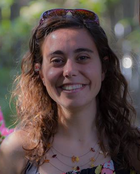
Sara Maloni
Associate Professor
Department of origin: Mathematics Department, University of Virgina - USA
Unibo reference: Maria Beatrice Pozzetti
Department of Mathematics
from to in the process of being defined
Short bio: Prof. Maloni is a leading researcher in mathematics, specializing in hyperbolic geometry, Anosov representations, and dynamics on character varieties—a vibrant and emerging field that bridges various mathematical domains including differential geometry, dynamical systems, algebra, and analysis. Her most notable contributions include resolving a question posed by Steiner in 1832 about polyhedra inscribed in quadrics, in collaboration with Danciger and Schlenker, which earned them the 2024 Frontiers of Science Award in Mathematics. Prof. Maloni has introduced groundbreaking ideas in the study of subgroups of Lie groups. With Martone, Mazzoli, and Zhang, she developed a novel coordinate system that provides tools to explore significant geometric phenomena. Together with Alessandrini, Tholozan, and Wienhard, she solved a conjecture regarding the topology of geometric structures associated with Anosov representations. The importance of her research is evidenced not only by her publications in top journals (including Inventiones, one of the premier mathematics journals) but also by her numerous invitations to speak at international conferences, participate in programs at renowned research institutions, and the award of prestigious fellowships such as the Simons Fellowship. Prof. Maloni leads an active research group with five doctoral students and has mentored a postdoc, who is now an assistant professor at UC Riverside. She has served on various NSF panels, the AMS council, the Canadian NSERC panel, and has co-organized numerous conferences and outreach activities.Her efforts to advance equity, inclusivity, and diversity in STEM have already had a significant impact on the mathematical community. Over the past five years, she and her collaborators have secured over $3 million in NSF funding. She has received several individual NSF research grants, including a CAREER award—the highest distinction the NSF bestows on junior researchers.
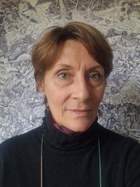
Giovanna Micarelli
Full Professor
Department of origin: Pontificia Universidad Javeriana, Columbia
Unibo reference: Chiara Scardozzi
Department of History and Cultures
from November 1, 2025 to December 1, 2025
Short bio: Giovanna Micarelli is full professor of Anthropology at the Pontificia Universidad Javeriana (Bogotá) and invited researcher at the Center for Social Studies, University of Coimbra (Portugal). Currently, she holds the role of Principal Investigator of a Spencer Foundation’s Research-Practice Partnership Grant for creating the biocultural university of the Inga people of Colombia. Additionally, she is involved in the TRANS.ARCH international project –Archives in Transition: Collective Memories and Subaltern Uses– funded by the EU’s Horizon 2020 Research and Innovation Program. Her research develops critical insights into contemporary debates on decolonial theory and practice, contributing through a particular focus on indigenous ontoepistemologies and methodologies. She has been conducting research in Amazonia since 1996, actively engaging in prolonged collaborative research with indigenous people, aimed at supporting indigenous rights and recognition in transcultural contexts marked by colonial and neocolonial power structures. She also has wide experience as consultant for indigenous organizations, the state and NGOs. Her work seeks to bring together sound ethnographic theory and public engagement, emphasizing on the social appropriation of knowledge, scientific dissemination, and decolonial transformation. Testifying to her commitment to an “anthropology by demand,” and intercultural, interdisciplinary dialogue, she co-laborated on such themes as health, education, memory, interculturality, territoriality, tourism, food sovereignty, intellectual property and reaffirmation of cultural knowledge through the arts, solidary economy, and joint publications with indigenous researchers. Her work’s transdisciplinary scope aligns perfectly with the educational and research goals of DISCI, its multidisciplinary centers, particularly MemoryLab and CeSCA, and FrameLAB-Multimedia & Digital Storytelling (DBC-Ravenna), showing significant potential for mutual contributions.
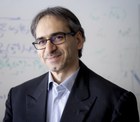
Gesualdo Scutari
Full Professor
Department of origin: School of Industrial Engineering and School of Electrical and Computer Engineeringa, USA, Purdue University.
Unibo reference: Giuseppe Notarstefano
Department of Elettrical, Electronic, and Information Engineering "Guglielmo Marconi" - DEI
from September 29, 2025 to October 29, 2025
Short bio:Gesualdo Scutari received the Electrical Engineering and Ph.D. degrees (both with honors) from the University of Rome “La Sapienza,’’ Rome, Italy, in 2003 and 2007, respectively. He is the Pedro and Granadillo Professor in the School of Industrial Engineering and of Electrical and Computer Engineering at Purdue University. He is a Purdue Faculty Scholar. He is the funding director of the Purdue research center "Science of Data Analytics". He has been the Scientific Director for the area of Big-Data Analytics at the Cyber Center (Purdue Discovery Park), and the Thrust Leader on Optimization at the Purdue Center for Resilient Infrastructures, Systems, and Processes. He is a Fellow of the Institute of Electrical and Electronics Engineers (IEEE). He had previously held several research appointments, namely, at the University of California at Berkeley, the Hong Kong University of Science and Technology, and the University of Illinois at Urbana-Champaign. His primary research interests focus on computational and modeling aspects related to continuous optimization and game theory, with application to statistical learning, signal processing, and communications. He has served as Associate Editor (AE) and later as senior AE of the IEEE Trans. on Signal Processing, AE of IEEE Signal Processing Letters, and currently he serves as AE of the SIAM Journal on Optimization. He has also served on the IEEE Signal Processing Society Technical Committee on Signal Processing for Communications. He received several awards, including the 2013 NSF Faculty Early Career Development Award, the 2013 UB Young Investigator Award, the 2015 Anna Maria Molteni Award for Mathematics and Physics from the ISSNAF, the 2015 IEEE Signal Processing Society Young Author Best Paper Award, and the 2021 IEEE Signal Processing Society Author Best Paper Award. He serves as one of five (worldwide) IEEE Signal Processing Society Distinguished Lecturers (2023-2024).
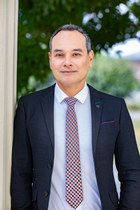
Lester Tomé
Associate Professor
Department of origin: Smith College, Northampton, Massachusetts
Unibo reference: Elena Cervellati
Department of the Arts
from December 1, 2025 to December 31, 2025
Short bio: Dr. Lester Tomé is an associate professor in the Dance Department and the Latin American Studies Program at Smith College, in Massachusetts. His research has appeared in The Cambridge Companion to Ballet, The Oxford Handbook of Contemporary Ballet, The Routledge Companion to Dance Studies, Dance Research Journal, Dance Chronicle and Cuban Studies, among other publications. His book manuscript The Body Politic: Ballet and Revolution in Cuba is under contract with Oxford University Press. He studies the history of ballet in the 20th and 21st centuries in the contexts of modernism, the Cuban Revolution, the Cold War, and present-day transnationalism. His research examines ballet in terms of the transatlantic circulation of avant-garde aesthetics; connections between dance, literature, cinema and anthropology; expressions of cosmopolitanism and nationalism in the ballet repertoire; ballet institutions’ embodiments of state ideology and postcolonial discourse; ballet as labor and dancers’ international migration from a political economy perspective; the representation of racial identity and Afrodiasporic culture in ballet; the performance of gender, sexuality and masculinity in ballet training and choreography; and critiques of institutional concepts of diversity and multiculturalism in contemporary ballet. This research has been supported by various US institutions. Tomé has been a Smith College Fellow at the American Academy in Rome (2022), a William J. Bouwsma Fellow at the National Humanities Center (2020-21), a National Endowment for the Humanities Fellow (2014-15), an affiliate researcher at Harvard University’s Afro-Latin American Research Institute (2014-15), and a Peggy Rockefeller Visiting Scholar at Harvard’s David Rockefeller Center for Latin American Studies (2013-14). He has served on the editorial boards of Dance Research Journal and Cuban Studies. He is founder of the Dance Studies Association’s Working Group on Latin American and the Caribbean